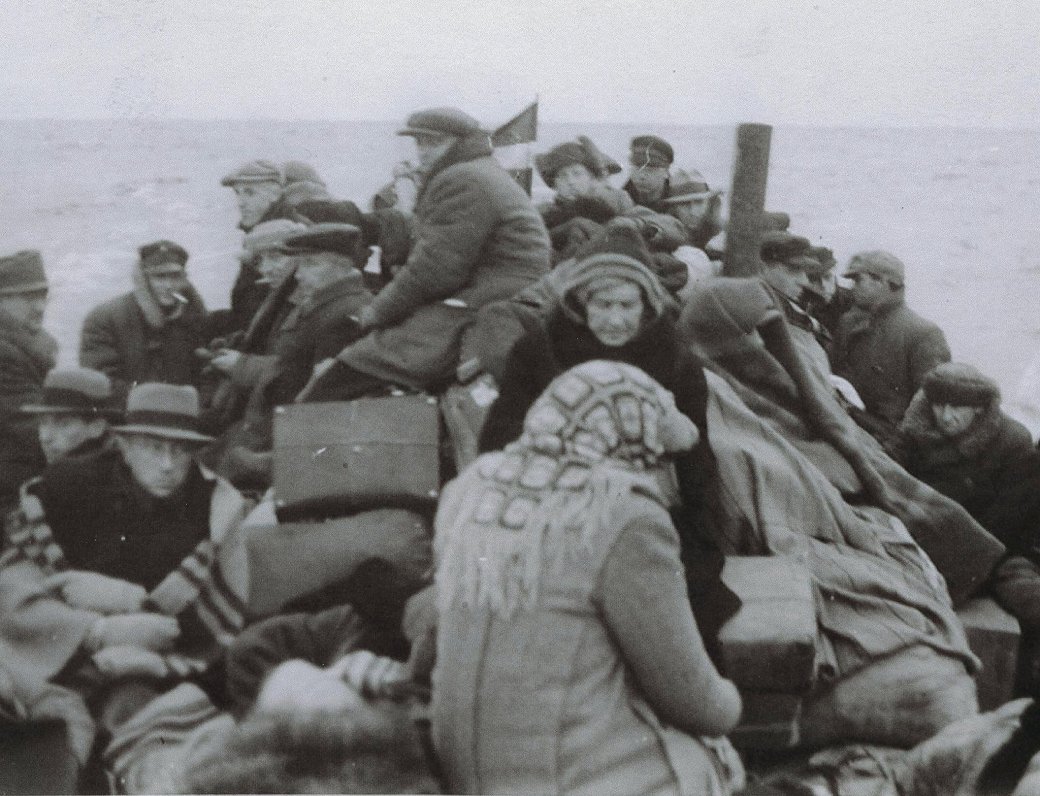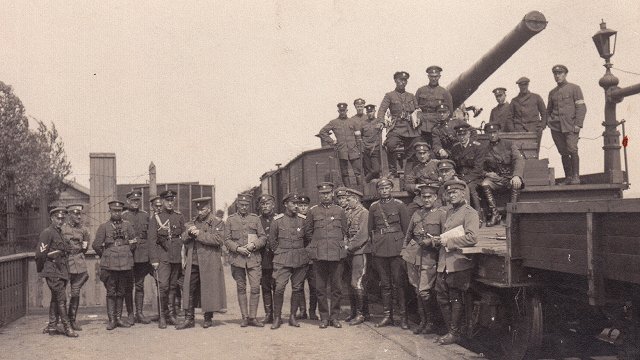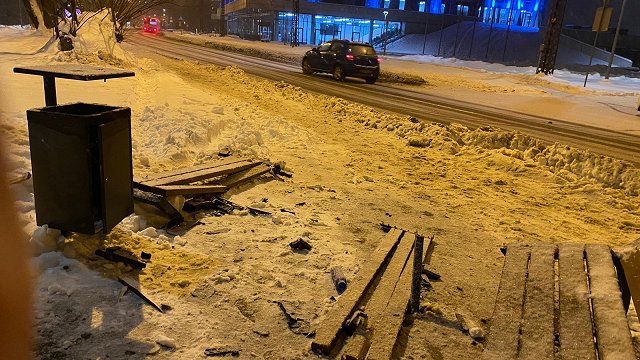There is no doubt that the emotional stories of the refugees of the Second World War are particularly relevant today, because, as the researcher emphasized, the events of the last two years in Ukraine allow us to better imagine how the refugees felt at that time.
If today the circulation of information is instantaneous, then it was slower and rarer. Researcher Maija Krūmiņa pointed out: "Of course, there were some rumors. It was difficult to make a final decision, people hesitated for a long time, and did not manage to escape. Or, if they started to leave, the Red Army caught up with them and they had to return."
For some, the decision to leave was made in a couple of hours, for others – after lenghty hesitation and doubts.
When asked why she chose such a research object, Krūmiņa revealed that it started while she was still at school working in the National Oral History collection of the Institute of Philosophy and Sociology of Latvia, decoding life story interviews.
Listening to the life stories of exiled Latvians about the starting their refugee journeys, at a time when these events were not yet told in school, Maija became interested in what was the emotional side of the beginning of the refugee journey: "Usually researchers depict the refugee journey – there is a beginning, there is an end point, we draw an arrow, and somehow they got there via the middle. I'm usually interested in why they fled and how they felt when they got there – integration, assimilation. It was important for me to explore the path in details, emotions."
Many of the stories are dramatic and emotional, founded on thoughts of safety and fear as the front approached. Another reason for the decision to flee was the huge fear of the Soviet regime and the Red Army – the thought that repression and the Soviet regime would follow was perceived as a huge threat – rightly, as it turned out.
Krumiņa pointed out: "If there had not been the first Soviet occupation, people would have reacted completely differently. Some people themselves had faced repressions directly, others had heard and sensed that they could be included in the following deportations, in addition, the media had demonized the enemy, and the feeling of fear was very strong in people. In many life stories, I heard about the fear of deportation, about the fact that there were second lists with names to be deported."
Run away and then come back
People often had the idea to run away, cross the front and then return at a later date. Country people rode in a horse-drawn cart, carrying food supplies, but large items such as typewriters and looms were buried in the ground. Grains and valuables were also buried. The researcher said that a child of the time told how his father buried the most valuable items, but to a child the most important thing was a goldfish, so he wanted to bury it.
Most often, those who thought that this was only a temporary departure and they would soon return home, buried their valuables. On the other hand, those who were afraid that the Red Army would take everything when they arrived, took as many valuables as possible with them.
"There was the experience of the First World War and the belief that the West would not allow Latvia to remain occupied," Krūmiņa explained.
Consequently, only the few who had more knowledge or intuition thought that this was really a refugee journey that would last for years, a lifetime, or even for several generations in exile.
Keys as a sacred memory of home
People's stories about house keys are significant, the researcher pointed out : "One option is to lock the house, and the keys, taken with them, often survive as a sacred memory throughout the exile, as a symbol of home. Meanwhile, others left the door open, realizing that there would likely be break-ins anyway... some others else left the keys with neighbors and acquaintances."
Analyzing the stories of the experiences of 70 families, it is revealed that the decision to flee or stay was painful and emotionally complex, and far from simple. For older people, making a decision was much more difficult, not only emotionally, but practically, based on the experience of the First World War, knowing that it is really difficult, physically.
Leaving the graves of one's family behind was also an important factor. There were also more practical considerations: "Illness of a family member – if everyone can't go, then no one goes. People with small children decided not to go. At the same time, there were many families who started the refugee journey with very small children. A very individual decision, when in the same circumstances, [people] make different decisions. Also, many became refugees by accident, that is, not wanting to leave their homeland at all, or because someone from the family really wanted to go, so there was no other choice."
In Krūmiņa's doctoral thesis "Memories of Second World War Refugees in the Life Stories of Latvians in Exile" you can read some episodes that very vividly reflect how difficult this decision was: "It was not at all clear until the last moment. [..,] It was like this in our house: one day it was: well, we have to go; the next day – no, maybe we'll stay, maybe we'll save ourselves somehow – after that it seemed like – no, we have to go... It was a terrible decision, terrible."
Another example says: "It was pretty crazy. I know I was sitting on the floor in a big room and I was in tears. Edgar [my husband] said: "You have to come with me! We are one family, we are married!" [..] My God, this is my home! I know that I can give birth peacefully. My children will be raised, that's all. What am I going to do there? I'm going anyway."
In contrast, children often perceived the refugees as an adventure – while they were waiting for a boat, the children played on the sand of the Kurzeme seaside, just like in a resort, then they arrived in Sweden – it was also exciting to live in a camp there, learning the Swedish language. Similarly, those who came to Germany lived to a certain extent under the protection of their parents, even in very difficult conditions.
And what's more, the fear of the Soviet regime also appears very strongly in children's memories.
Above all, almost no-one had an understanding of what really was to come, ignorance reigned: "What happened had to be accepted as a fact. Even after the war ended, many hoped that everything would end well and the situation would change. True understanding came slowly, over time There were also several motives for emigrating after the displaced persons camps – those who hoped that one day everything would end, stayed closer to Latvia, in Europe, while those who feared that Soviet power would not stop decided to go as far as possible to Brazil, Chile, Venezuela, America and Australia."
Nevertheless, throughout the 50 years of exile, the majority kept the hope that one day Latvia would be free again which, thankfully eventually came to pass.
































